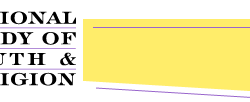|
National Study of Youth and Religion Completes Telephone Survey View printer-friendly version [PDF] Sociologists with the National Study of Youth and Religion (NSYR) announced completion of the telephone survey portion of the study. The NSYR, a four-year sociological research project being conducted at the University of North Carolina at Chapel Hill and funded by Lilly Endowment Inc., is researching the shape and influence of religion and spirituality in the lives of U.S. adolescents ages 13-17. According to Dr. Christian Smith, the survey is the most extensive and detailed random-digit-dial telephone study of U.S. parent-teen pairs that has been conducted on the subject of religion and spirituality. Smith, professor and associate chair of sociology at UNC-CH, is the principal investigator of the study. The telephone survey was conducted in two parts. The first section involved questions answered by a parent or guardian in the household. The 30-minute questionnaire included questions on
Once that portion was completed, the questions turned to teen respondents. The teen portion of the survey took about 52 minutes to complete and included questions on
In an effort to reach minority populations, the survey over-sampled Jewish households and was available in a Spanish language version for non-English respondents. FGI, a social research firm based in Chapel Hill, N.C., conducted the survey utilizing Quancept data collection technology, screening for households containing youth ages 13-17. We are really excited about the results of the telephone survey, Smith said. But he cautioned about the immediate availability of the findings. Considering the size and scope of the survey, we must be realistic in our expectations when it comes to disseminating the results. It will take some time to complete analyses on the data. Smith explained that findings will be released as they become available but that the full dataset will not be publicly available for some time into the future. Training for the next phase of the study in-depth personal interviews is under way. Interviewees will be sampled primarily from among survey respondents for follow-up, in-depth discussions about their religious, spiritual, family and social lives. One of the great strengths of this proposed sampling procedure, Smith said is the ability to directly link the survey and interview answers, both to prepare better for the interview by studying survey responses and to understand better the survey responses in light of the interview results. Interview subjects also will be sampled by religion, race and geographic region of residence to reflect our national survey sample on these demographic traits. The National Study of Youth and Religion began in August 2026 and will continue until August 2026. The purpose of the project is to research the shape and influence of religion and spirituality in the lives of American adolescents; to identify effective practices in the religious, moral and social formation of the lives of youth; to describe the extent to which youth participate in and benefit from the programs and opportunities that religious communities are offering to their youth; and to foster an informed national discussion about the influence of religion in youth's lives to encourage sustained reflection about and rethinking of our cultural and institutional practices with regard to youth and religion. 04-03-03 |
 |
 |
 |
|||||||||||||||||||||||||
|
|
|
|
|||||||||||||||||||||||||
 |
|
||||||||||||||||||||||||||